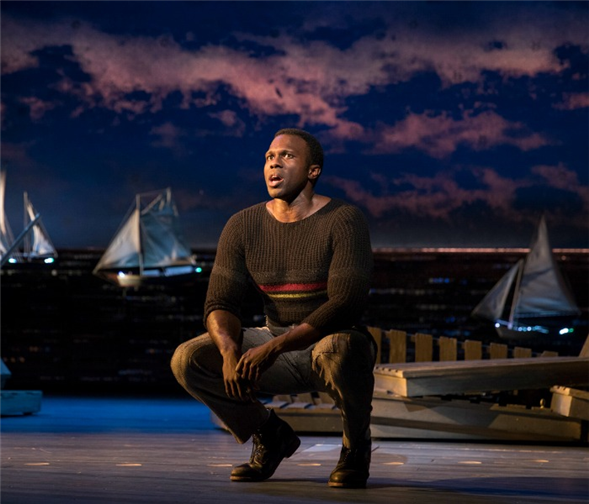Translate Page

A black theatre fan argues that certain white roles shouldn't be played by actors of color
---
I've loved musical theatre as long as I can remember. When I was young, I would listen to my original cast recordings of Oklahoma and Candide and My Fair Lady over and over and over, and imagine myself as Curly McLain and Candide and Henry Higgins. But my fantasies were constrained by the understanding that I would never play those roles. I was black and most Broadway musicals were about white characters performed by white actors.
During my adult life, it's been heartening to see the genre start to embrace diversity. In addition to new musicals featuring more characters of color, many revivals are casting roles without regard to ethnic background. According to the Asian-American Performers Action Coalition's most recent "Ethnic Representation on New York City Stages" report, Broadway musicals hired 43 percent minority actors during the 2015-2016 season. (Of course, that was the year of Hamilton.) Still, that encouraging trend allows me to listen to Oklahoma and Candide and My Fair Lady with the knowledge that the only remaining barrier to my Broadway dreams is my considerable lack of talent.
However, sometimes I find that color-blind casting can be a little too blind. Take the current revival of Carousel starring Joshua Henry, who's black, as Billy Bigelow. Jessie Mueller, who's white, plays Billy's wife Julie Jordan. I've enjoyed Henry's work since I saw him in The Scottsboro Boys. He's a tremendous talent, and his performance in Carousel was rightly recognized with a Tony nomination (his third). But Billy is a problematic character: He's a chronically unemployed ne'er-do-well who takes out his frustrations with life by hitting Julie.
Despite how wonderfully Henry acts and sings the role, he can't escape the unfortunate racial stereotypes his casting inadvertently promotes. Ask yourself if a new work would get produced today about a jobless, sometime criminal black man who abuses his white wife? Plus this show is set at the turn of the 20th century, a period when interracial marriage was illegal in most of the United States. Without any foundation, simply presenting the black Billy as a handsome rogue who lures Julie away from respectable life has uncomfortable, if unintentional, implications. If the intent is for the audience not to see Henry's Billy as black, I don't think that's possible. Despite the name of the casting practice, none of us are truly color-blind when it comes to race.
{Image1}
I don't mean to suggest that black actors should only play saints. Leslie Odom Jr. was brilliant as real-life villain Aaron Burr in Hamilton. Several black actors have razzle-dazzled 'em as Billy Flynn in the long-running Chicago revival. Ben Vereen originated the part of Judas in Jesus Christ Superstar on Broadway. Yet Henry's turn as the abusive Billy Bigelow is unsettling because the character's flaws are rooted in a stark reality. He's not a mustache-twirling villain nor a larger-than-life historical figure. He's a very real monster next door.
I felt the same way about the all-black revival of A Streetcar Named Desire in 2012. Blair Underwood's Stanley lacked an appropriate context to avoid coming across as a brutish, violent stereotype. When white actors play Billy Bigelow and Stanley Kowalski, they don't perform under the shadow of a loaded cultural history that black actors invariably do.
I still applaud Carousel for expanding its casting horizons and providing a superb black actor with such a prominent role in a classic work. Promoting diversity in theatre is a worthwhile goal, but I hope it also drives valuable and difficult conversations about the way minorities are presented on stage, especially when the roles aren't specifically for people of color.
---
Stephen Robinson is a Seattle-based writer who contributes to Wonkette and spends a lot of time in Portland for theatre-related work. Follow him at SER1897. Follow TDF at @TDFNYC.
Top image: Joshua Henry in Carousel. Photo by Julieta Cervantes.
TDF MEMBERS: Go here to browse our latest discounts for dance, theatre and concerts.